What Happens during Over 40 Health Check?


Related products
The transition into the fourth decade of life brings with it a cascade of physiological changes that necessitate a more vigilant approach towards health. In this regard, the over 40 health check emerges as a pivotal tool in preventive medicine. As Dr. Emily Roberts, a renowned geriatrician, aptly puts it, "Turning 40 is more than a milestone; it's the start of a critical phase where proactive health screening can make a substantial difference in long-term well-being."
The over 40 health check is a comprehensive health assessment designed specifically for adults as they enter their 40s. Its primary purpose is to screen for early signs of common age-related conditions such as cardiovascular diseases, diabetes, and certain cancers. The essence of this check lies not just in disease detection but also in risk assessment and health optimization. According to the British Heart Foundation, individuals over 40 are at an increased risk of heart-related issues, thus underscoring the significance of these checks.
Frequency of Health Checks
Medical guidelines suggest that individuals over 40 should undergo a health check at least once every five years. However, this frequency can vary depending on individual risk factors like family history, pre-existing conditions, and lifestyle choices. Dr. Roberts advises, "While general guidelines are a good starting point, a personalised approach, especially for those with a family history of chronic illnesses, is imperative." The NHS Health Check programme in the UK is a testament to the country's commitment to preventive health, offering free checks to adults aged 40-74 every five years.
General Components
The over 40 health check is multifaceted, encompassing various tests and assessments tailored to gauge different aspects of health. The following components form the core of this check:
-
Physical Examination: This is a general assessment of your body for signs of any current health issues. It often includes measurements of height, weight, and Body Mass Index (BMI) to assess for overweight or obesity, which are risk factors for numerous health conditions.
-
Blood Pressure Measurement: High blood pressure is a silent threat that escalates the risk of heart disease and stroke. The NHS reports that over a third of adults in the UK have high blood pressure, many of whom are unaware.
-
Cholesterol Check: A blood test to measure cholesterol levels is crucial. Elevated cholesterol is a key risk factor for heart disease. Dr. Roberts notes, “Regular monitoring of cholesterol levels post-40 can significantly reduce the risk of cardiovascular complications.”
-
Blood Sugar Levels: This test checks for diabetes or pre-diabetic conditions, increasingly common in the over-40 age group. Diabetes UK estimates that around 90% of all adults with diabetes have type 2, which is closely linked to lifestyle and age.
-
Cancer Screenings: Depending on age, gender, and family history, screenings for cancers such as breast, cervical, prostate, and colorectal cancer are recommended. These screenings are vital as Cancer Research UK highlights that 53% of cancers are diagnosed in people aged 50 and over.
-
Bone Health Assessment: This is particularly crucial for women, as the risk of osteoporosis increases post-menopause. A bone density scan may be suggested to assess the risk.
-
Mental Health Screening: Mental well-being is as crucial as physical health. Screenings for depression, anxiety, and other mental health issues are integral to the over 40 check, acknowledging the complex interplay between mental and physical health in this age group.
-
Lifestyle Assessment: This involves a discussion about diet, exercise, smoking, and alcohol consumption, offering a chance to provide personalised lifestyle advice.
Pre-Check Preparation
Preparing for a health check, especially for individuals over 40, is a crucial step in ensuring the effectiveness and accuracy of the examination. As Dr. Sarah Johnson, a leading General Practitioner in London, emphasises, "Preparation for a health check is not just a procedural formality; it is a fundamental aspect that can significantly influence the outcome."
Steps to Prepare for the Health Check
Preparation for a health check begins well before the appointment. Dr. Johnson advises her patients to "keep a health diary in the weeks leading up to the check." This diary should include notes on any symptoms, changes in health, or concerns that have arisen. Patients are also encouraged to fast for a certain period before the check, particularly if a blood test is involved, as certain tests require fasting for accurate results. It's important to follow the specific instructions provided by the healthcare provider, as these can vary depending on the tests being conducted.
Importance of Accurate Medical History
One of the most critical components of the preparation is compiling an accurate and comprehensive medical history. This includes past medical conditions, surgeries, hospitalisations, and any significant family health history. According to a study by the Royal College of General Practitioners, "Incomplete medical history can lead to misdiagnosis or delayed diagnosis in nearly 20% of cases." Dr. Johnson notes, "Knowing a patient's medical past is like having a roadmap; it guides us to make more informed decisions about their current health status and future risks."
List of Current Medications
Alongside medical history, a detailed list of all medications, including over-the-counter drugs and supplements, is essential. "Medications can have a profound impact on test results and can mask or mimic certain conditions," explains Dr. Johnson. For instance, certain blood pressure medications can alter kidney function test results, making it crucial for the doctor to be aware of all medications a patient is taking.
Lifestyle and Diet Considerations
Lifestyle and diet also play a significant role in the preparation for a health check. Patients are generally advised to maintain their normal diet and lifestyle in the lead-up to the check, as significant changes can skew results. For example, drastically altering salt intake before a blood pressure test can lead to inaccurate readings. However, in some cases, such as when preparing for a cholesterol test, doctors might advise avoiding certain foods or alcohol. According to the British Heart Foundation, "Diet can have a direct and immediate impact on cholesterol levels, making it important to follow pre-test dietary guidelines."
It's also important for patients to consider their physical activity levels. Dr. Johnson points out that "a sudden increase in exercise right before a health check can lead to atypical results in some tests, such as those for muscle enzymes."
What Happens at a Health Check Appointment?
Understanding what transpires during a health check appointment, particularly for those over the age of 40, is crucial. It’s a process that not only assesses your current health status but also sets a baseline for future checks. Dr. Fiona Clarke, a seasoned healthcare professional from Manchester, emphasises, "A health check is a comprehensive assessment. It’s not just about looking for problems but also about establishing a health baseline for the future."
Detailed Breakdown of Procedures and Assessments
During the appointment, several standard procedures and assessments are conducted, each playing a pivotal role in evaluating overall health.
-
Initial Consultation: This typically starts the appointment. Here, the healthcare provider reviews your medical history, discusses any current symptoms or concerns, and talks about lifestyle factors such as diet, exercise, smoking, and alcohol use. "This conversation sets the stage for the entire check-up," notes Dr. Clarke.
-
Physical Examination: The doctor conducts a thorough physical examination, which may include checking skin for abnormalities, listening to the heart and lungs, examining the abdomen, and assessing joint health. As per NHS guidelines, this examination aims to identify any visible signs of potential health issues.
-
Blood Pressure Measurement: Blood pressure is a critical indicator of cardiovascular health. The National Institute for Health and Care Excellence (NICE) reports that high blood pressure affects more than 1 in 4 adults in the UK. This simple test gives vital information about the risk of heart disease and stroke.
-
Blood Tests: Blood tests are integral to the health check, providing data on cholesterol levels, blood sugar, kidney function, liver function, and more. Dr. Clarke highlights, "These tests can uncover issues like high cholesterol or diabetes that often show no symptoms in the early stages."
-
Body Mass Index (BMI) Calculation: The BMI is calculated to assess if you're a healthy weight for your height. Obesity is a known risk factor for numerous health conditions, including type 2 diabetes, heart disease, and certain types of cancer.
-
Additional Screenings: Depending on age, gender, and medical history, additional screenings such as mammograms, prostate exams, or colonoscopies may be recommended. Cancer Research UK states that early detection of cancer greatly increases the chances for successful treatment.
Standard Protocol Followed by Healthcare Providers
Healthcare providers adhere to a standard protocol to ensure consistency and comprehensiveness in the health check process. Dr. Clarke explains, "We follow a systematic approach to ensure we don't miss any aspect of the patient's health." This protocol includes:
- Ensuring patient privacy and comfort.
- A systematic approach to the physical examination.
- Using standardised equipment for tests like blood pressure measurement.
- Following national guidelines for blood tests and screenings.
- Documenting and explaining each step to the patient.
Key Assessments and Tests

In a health check for individuals over 40, various key assessments and tests are conducted to evaluate and monitor different aspects of health. Dr. Laura Bennett, a senior consultant in preventive medicine, emphasizes, “Each test in the health check is tailored to not just identify potential health issues but also to proactively manage and prevent them.”
Physical Examination
The physical examination is a cornerstone of the health check, involving a comprehensive evaluation of the body for any signs of illness. For both men and women, this includes assessing the skin, eyes, ears, nose, throat, chest, abdomen, limbs, and nervous system functions. Dr. Bennett notes, “The physical exam helps in detecting conditions that might not present with overt symptoms initially, like subtle changes in skin or unusual lumps.”
For men, there might be an additional focus on the prostate and testicular health, while women might have breast examinations and discussions about gynecological health. “These gender-specific checks are crucial in early detection of conditions like breast or prostate cancer,” adds Dr. Bennett.
Blood Tests
Blood tests play a pivotal role in assessing various health indicators. Common blood tests include:
- Cholesterol Levels: High cholesterol is a major risk factor for heart disease. According to the British Heart Foundation, over half of adults in England have raised cholesterol.
- Blood Sugar Levels: This test assesses for diabetes. Diabetes UK states that more than one in ten adults over 40 in the UK are living with diabetes, predominantly Type 2.
- Liver and Kidney Function Tests: These tests are vital for assessing how well these organs are working and detecting any early signs of dysfunction.
Blood Pressure Measurement
Monitoring blood pressure is crucial, as hypertension is often asymptomatic. The NHS reports that high blood pressure affects more than one in four adults in the UK. Regular monitoring helps in early detection and management of hypertension, reducing the risk of heart attacks and strokes.
Heart Health Checks
Cardiac assessments such as an Electrocardiogram (ECG) may be conducted, especially if there are risk factors like a family history of heart disease. Dr. Bennett explains, “An ECG can detect irregularities in heart rhythm and structure, helping in the early detection of heart conditions.”
Cancer Screenings
Cancer screenings are tailored based on age, gender, and family history. Women may be advised to have mammograms for breast cancer screening, while men might have prostate exams. The NHS cervical screening program is also critical for women. “Timely cancer screenings can significantly improve the chances of successful treatment,” says Dr. Bennett.
Bone Health
Assessing bone health, particularly for osteoporosis, is vital. Women are at a higher risk, especially post-menopause. Bone density scans help in detecting early signs of bone loss, enabling proactive management.
Vision and Hearing Tests
Regular screenings for vision and hearing are important, as there can be gradual decline in these senses with age. The Royal National Institute for Blind People (RNIB) suggests regular eye tests every two years, especially for those over 40.
Mental Health Screening
Mental health assessments for issues like depression and anxiety are increasingly recognized as vital. “Mental health significantly impacts overall wellbeing, especially as we age,” Dr. Bennett remarks.
What Does a Full Health Check Involve?
A full health check, particularly for those over 40, is an extensive and comprehensive examination that covers various aspects of an individual's health. As Dr. Helen Foster, a specialist in preventive medicine, states, "A full health check is akin to a detailed service for your car; it's not just about finding immediate issues but also about foreseeing potential future problems."
Comprehensive Overview of All Components
A full health check typically includes the following components:
-
Detailed Medical History Review: This is the foundation of the health check, where doctors assess medical history, family history of diseases, and any current health issues or symptoms.
-
Complete Physical Examination: This thorough examination covers all body systems, including heart, lungs, abdomen, skin, and neurological systems. As Dr. Foster explains, "The physical examination can reveal signs of conditions that are otherwise asymptomatic."
-
Blood Tests: Comprehensive blood tests cover cholesterol levels, blood sugar, liver and kidney function, thyroid function, and a complete blood count. These tests can reveal hidden diseases like diabetes, kidney dysfunction, or anemia.
-
Cardiovascular Assessments: This includes blood pressure measurements and may include an Electrocardiogram (ECG) or even an echocardiogram to assess heart health more thoroughly.
-
Cancer Screenings: Depending on age, gender, and risk factors, this might include mammograms, Pap smears, prostate-specific antigen (PSA) tests, and bowel cancer screenings.
-
Bone Health Assessment: A bone density scan (DEXA scan) to check for osteoporosis, particularly for women post-menopause, as they are at a higher risk.
-
Vision and Hearing Tests: Regular checks for changes in sight and hearing, which can often deteriorate with age.
-
Mental Health Assessment: Screening for signs of depression, anxiety, and other mental health conditions, which are crucial for overall well-being.
Additional Tests in a Full Health Check
Beyond these standard checks, a full health check for those over 40 might include additional assessments:
- Advanced Cardiovascular Tests: These might include stress tests or advanced cholesterol testing to look at specific types of lipids.
- Lung Function Tests: Especially relevant for smokers or those with a history of lung issues.
- Hormonal Assessments: For those experiencing symptoms that may suggest hormonal imbalances.
- Nutritional Assessments: Tests to check for vitamin deficiencies, which are common as one ages.
- Genetic Testing: In some cases, genetic testing might be advised, especially if there is a strong family history of certain diseases.
- Skin Checks: A dermatological assessment for skin cancers or pre-cancerous lesions, often overlooked in standard checks.
Dr. Foster adds, “In a full health check, we’re not just looking at what is, but also at what could be. It’s about understanding the full picture of an individual’s health, including their lifestyle, environmental factors, and genetic predispositions.”
Lifestyle Assessment and Counseling
In the realm of health checks for those over 40, lifestyle assessment and counseling stand out as crucial components, shaping the course of one's health journey. This phase delves into various lifestyle factors, including diet, exercise, smoking, and alcohol consumption, all of which significantly impact overall health and wellbeing. Dr. Rachel Hammond, an expert in lifestyle medicine, asserts, "Lifestyle choices are the bedrock upon which we build our health, especially as we age. The right choices can dramatically reduce the risk of chronic diseases."
Diet and Nutrition
A balanced diet is fundamental for maintaining good health. During the lifestyle assessment, healthcare providers often discuss dietary habits, focusing on the intake of fruits, vegetables, whole grains, lean proteins, and healthy fats. As per the British Nutrition Foundation, a balanced diet can reduce the risk of chronic diseases like heart disease, diabetes, and obesity. Dr. Hammond advises, "Tailoring diet recommendations based on individual health conditions, like high cholesterol or diabetes, is essential for effective management."
Exercise and Physical Activity
Exercise is another critical aspect of the assessment. Regular physical activity is known to improve cardiovascular health, strengthen bones and muscles, and enhance mental health. The NHS recommends at least 150 minutes of moderate aerobic activity or 75 minutes of vigorous activity per week for adults. "Exercise prescriptions should be as unique as the individual, considering their current fitness level, health conditions, and preferences," states Dr. Hammond.
Smoking and Alcohol Consumption
Smoking and excessive alcohol consumption are significant risk factors for numerous health conditions. During the health check, doctors discuss these habits and offer support for cessation. According to Cancer Research UK, smoking is the single biggest cause of cancer in the world, and reducing alcohol intake can lower the risk of several types of cancer. "Supporting patients in quitting smoking and moderating alcohol consumption can have profound health benefits," highlights Dr. Hammond.
Personalized Advice
The culmination of the lifestyle assessment is personalized advice, which is tailored based on the results of the health check and the individual's lifestyle. This advice might include specific dietary changes, an exercise regimen, tips for stress management, and strategies for quitting smoking or reducing alcohol intake. Dr. Hammond notes, "Personalized advice is key; it considers the individual's lifestyle, preferences, and challenges, making it more sustainable and effective."
The integration of lifestyle assessment and counseling into the health check echoes the core of proactive health management. It emphasizes the power of lifestyle choices in shaping health outcomes, particularly for those over 40. This segment of the check is not just about identifying risk factors but also about empowering individuals with the knowledge and tools to make healthier choices. As Dr. Hammond concludes, "Lifestyle counseling is as much about education as it is about health; it’s about equipping people with the knowledge to make informed decisions about their health." This approach resonates with the overarching goal of the article: to promote a proactive stance towards health, emphasizing prevention and well-being.
Vaccinations and Preventive Medications

In the context of health checks for those aged over 40, vaccinations and preventive medications hold a significant place. They are key tools in the preventive healthcare arsenal, helping to ward off illnesses and manage pre-existing conditions. Dr. Simon Reynolds, an immunologist with extensive experience in adult vaccinations, emphasizes, "Vaccinations and preventive medications are not just for the young. They play a critical role in maintaining health, especially as we age."
Overview of Recommended Vaccines
For individuals over 40, several vaccinations are particularly important:
-
Influenza Vaccine: The flu vaccine is recommended annually. As per Public Health England, the flu can be more severe in older adults, making the vaccine crucial for this age group.
-
Pneumococcal Vaccine: This vaccine protects against pneumococcal infections, which can cause pneumonia, meningitis, and bloodstream infections. Dr. Reynolds notes, “Pneumococcal diseases are particularly dangerous for older adults, and vaccination is an effective preventative measure.”
-
Shingles Vaccine: Recommended for older adults, the shingles vaccine helps prevent this painful condition, which is more common and severe in older individuals.
-
COVID-19 Vaccine: The COVID-19 vaccines, including booster doses, are essential in protecting against severe illness caused by the coronavirus. The importance of ongoing COVID-19 vaccination, especially for older adults, is underscored by the NHS.
-
Other Vaccines: Depending on health status and lifestyle, other vaccines such as Hepatitis B, Tetanus, and Diphtheria boosters may also be recommended.
Preventive Medications
Preventive medications play a pivotal role in managing chronic conditions and preventing their complications. Common preventive medications for individuals over 40 include:
-
Statins for Cholesterol: Statins are often prescribed for high cholesterol, a risk factor for heart disease and stroke. The British Heart Foundation states that statins can significantly reduce the risk of these conditions in individuals with elevated cholesterol levels.
-
Antihypertensives for Blood Pressure: High blood pressure is a common issue in this age group. Medications to control blood pressure are essential in reducing the risk of heart attacks and strokes.
-
Medications for Diabetes: For those with diabetes, maintaining blood sugar levels with medication is crucial in preventing long-term complications.
-
Osteoporosis Medications: Especially for postmenopausal women, medications to strengthen bones and prevent fractures are often prescribed.
Dr. Reynolds adds, “These preventive medications, when used appropriately, can vastly improve quality of life and reduce the risk of serious complications.”
Can I Ask My GP for a Full Health Check?
The question of whether one can request a full health check from their General Practitioner (GP) is crucial, particularly for those over 40, as it underpins the proactive approach to personal health care. Dr. Susan Hartley, a GP with extensive experience in patient care, advises, "Being proactive about your health is vital, and asking for a full health check is a significant step in that direction."
Requesting a Full Health Check
Approaching your GP for a full health check involves a few key steps:
-
Making the Appointment: Contact your GP's office and specifically request a full health check. It's helpful to mention that you are over 40 and interested in a comprehensive health evaluation.
-
Clarify the Purpose: Explain why you want the health check. Dr. Hartley suggests, “Be clear about your reasons, whether it's a general concern, a specific symptom, or a family history of certain conditions.”
-
Prepare for the Appointment: Gather information about your medical history, current medications, and any specific concerns you have. Dr. Hartley adds, “Coming prepared can make the appointment more productive and helps your GP to understand your health needs better.”
Communicating Health Concerns
Open communication with your GP is essential. Discuss your concerns candidly, whether they relate to specific symptoms, family history, or lifestyle changes. Dr. Hartley says, “A GP’s role is not just to treat but to listen and understand. Your concerns are a crucial part of the health check process.”
What to Expect from Your GP
During the health check, you can expect your GP to:
-
Review Your Medical History: This includes discussing any past illnesses, surgeries, or ongoing health issues.
-
Conduct a Physical Examination: Your GP will likely perform a comprehensive physical examination.
-
Order Tests: Based on the initial examination and discussion, your GP may order blood tests, imaging tests, or other diagnostic procedures.
-
Discuss Lifestyle Factors: Expect a conversation about your diet, exercise habits, smoking, alcohol use, and mental health.
-
Provide Advice and Recommendations: Based on the findings, your GP will offer advice, which may include lifestyle changes, referrals to specialists, or further tests.
Post-Check Follow-Up

After undergoing a health check, particularly for those over 40, the post-check follow-up is a critical phase where understanding and action converge. This phase is not merely a formal procedure but a pivotal point in one's health management journey. Dr. Emma Thompson, a specialist in internal medicine, explains, "The post-check follow-up is where we translate health data into meaningful, actionable plans."
Understanding Your Results
Interpreting the results of a health check involves a detailed understanding of various health indicators:
-
Blood Test Results: These might include cholesterol levels, blood sugar levels, liver and kidney function tests. For instance, elevated cholesterol might indicate a higher risk of heart disease.
-
Blood Pressure Readings: High blood pressure can be a precursor to cardiovascular problems. Dr. Thompson advises, "Understanding your blood pressure numbers is crucial, as they offer insights into heart health."
-
Physical Examination Findings: This might involve discussions about weight, BMI, or any unusual findings during the exam.
-
Screening Test Results: Results from tests like mammograms or prostate exams are critical in cancer prevention and early detection strategies.
Dr. Thompson adds, “It’s important for patients to understand not just the 'what' of their results, but the 'why' and the 'how' they impact their overall health.”
Recommendations for Follow-Up Care or Further Testing
Based on the results, your GP might recommend:
-
Further Diagnostic Tests: If initial tests indicate potential issues, more specific tests may be necessary.
-
Referrals to Specialists: For certain conditions, you might be referred to specialists for further evaluation and treatment.
-
Lifestyle Modifications: Changes in diet, exercise, and other lifestyle factors can be recommended based on the findings.
-
Medication Adjustments: If you’re already on medications, adjustments might be needed, or new medications may be prescribed.
Dr. Thompson states, “Follow-up recommendations are tailored to each individual, ensuring a targeted approach to health management.”
Setting Health Goals and Plans Based on Health Check Findings
The final step in the post-check follow-up is setting health goals and plans:
-
Creating a Personalised Health Plan: This involves setting realistic, achievable health goals based on the check-up results.
-
Lifestyle Goals: These might include specific targets for weight loss, dietary changes, or increasing physical activity.
-
Monitoring and Re-evaluation: Regular monitoring of health parameters is essential. Dr. Thompson suggests, “Setting up a schedule for re-evaluation can help in keeping track of progress and making necessary adjustments.”
-
Mental Health and Wellbeing: Goals also include aspects of mental health, such as stress management techniques or counseling if needed.
Conclusion

The journey through the various facets of health checks for individuals over 40 culminates here, not just as a conclusion to this article but as a starting point for a more engaged and proactive approach to health. This segment reaffirms the critical importance of regular health checks and encourages readers to take charge of their health, resonating with the article's overarching theme of proactive health management.
The Importance of Regular Health Checks
Regular health checks for those over 40 are more than just routine medical appointments; they are a key component of a proactive health strategy. As Dr. James Allen, a consultant in preventive medicine, states, "Regular health checks are vital in early detection and prevention of many chronic diseases that commonly manifest in later life." Statistics from the World Health Organization (WHO) show that early detection of diseases like diabetes, heart disease, and cancer significantly improves the chances of successful treatment and management. Dr. Allen further explains, "These checks serve as an early warning system, allowing for interventions before conditions become more serious."
Proactive Health Management
Proactive health management is about taking an active role in maintaining and improving your health. It involves not only attending regular health checks but also understanding and acting on the advice given. Dr. Allen suggests, "Being proactive means making lifestyle changes, following medical advice, and staying informed about your health." He emphasizes the significance of lifestyle choices in disease prevention, citing evidence from the British Heart Foundation on the impact of diet and exercise on heart health.
The Role of Health Checks in Preventive Care
Health checks are a cornerstone of preventive care. They provide valuable insights into one's health status, allowing for timely interventions. Dr. Allen remarks, “Preventive care through regular health checks can lead to a longer, healthier life.” The NHS advocates for regular health screenings, especially for those over 40, as a means to reduce the risk of major diseases.
Regular health checks for those over 40 are a crucial aspect of maintaining and improving health. They provide a foundation for proactive health management, allowing individuals to detect potential health issues early and take necessary actions to prevent them. This article, through its comprehensive exploration of health checks and their significance, aims to encourage and empower readers to take a proactive stance towards their health, embodying the principle that prevention is better than cure. As Dr. Allen succinctly puts it, "Your health is your most valuable asset; invest in it wisely."




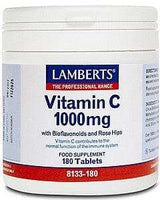
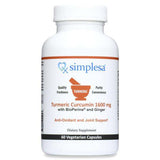








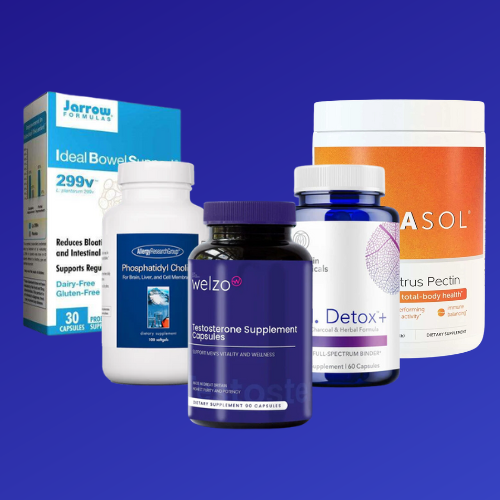
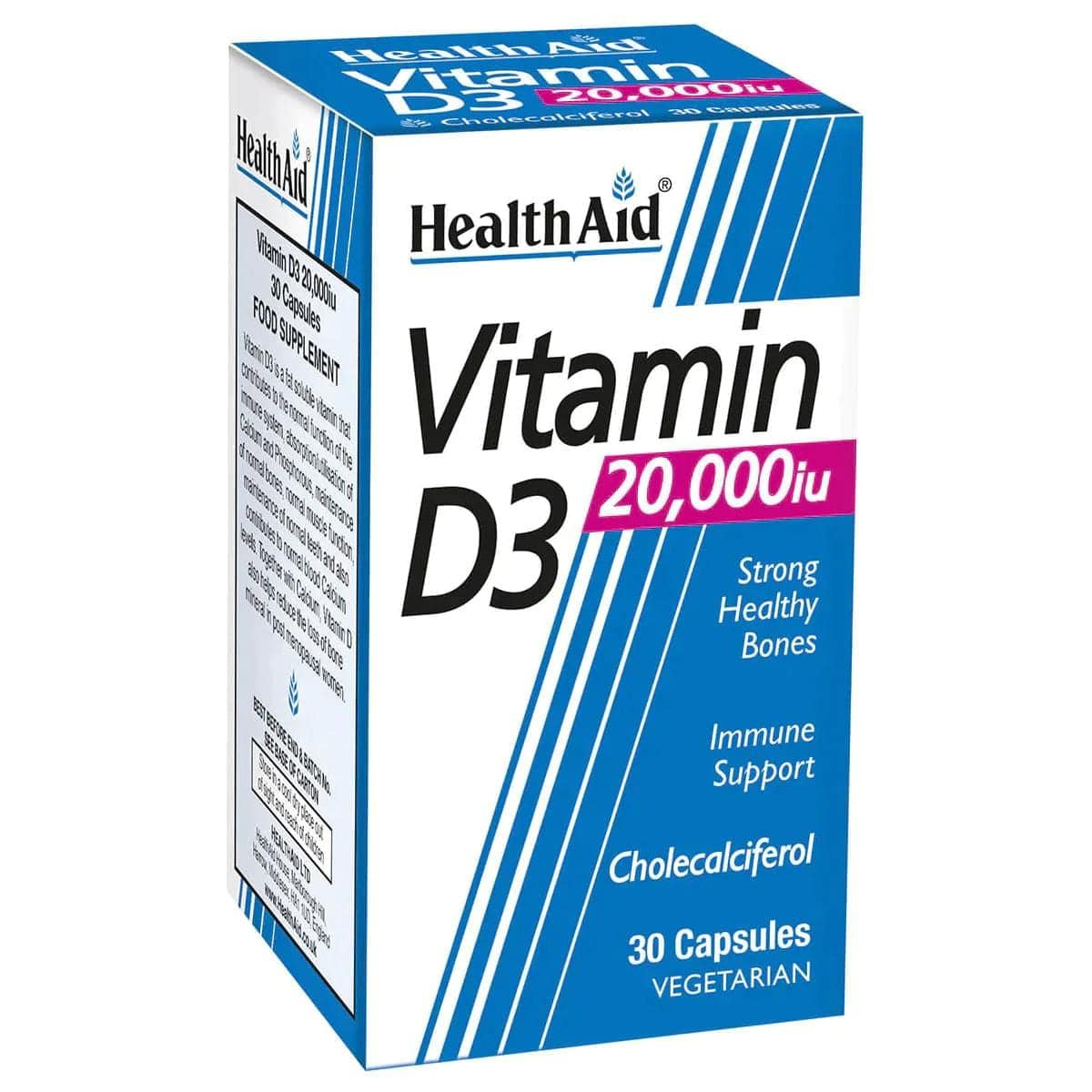




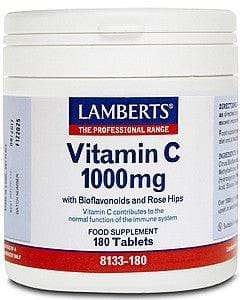
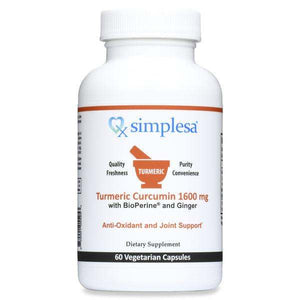















 Rated Excellent by 26,523+ Reviews
Rated Excellent by 26,523+ Reviews